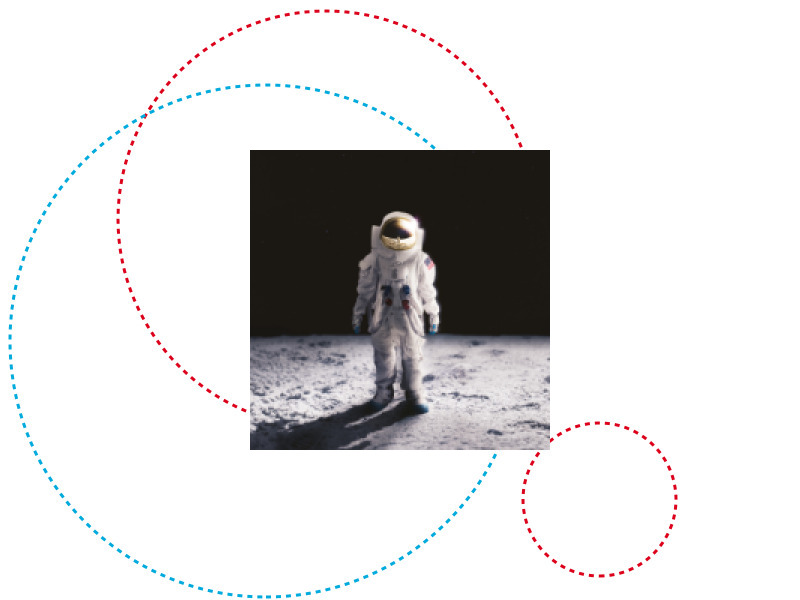In-situ space resource utilisation (ISRU) is an area of research that is proving increasingly important to the future of our exploration of space. As we continue to explore deeper into our solar system, self-sufficient missions are going to become a necessity, as immediate access to life-sustaining cargo will be out of reach. Our current efforts to venture into space result in a high consumption of resources, but if we can understand how to gather resources such as water, building materials and energy – in the form of fuel and power – within space, then we can reduce our dependence on needing to stay within range of help.
This was just one of the topics covered last month at SnT’s Forward to the Moon webinar, organised in collaboration with the Space Generation Advisory Council (SGAC). SGAC is a global, non-governmental, not-for-profit organisation representing the space youth at the United Nations – the largest network in the world for students and young professionals within the space community. They work diligently to raise awareness for the next generation of space professionals. The event explored a research area that is receiving attention from scientists around the world: what role will the moon have in the future of our space exploration?
Forward to the Moon saw a host of speakers take part, including experts from the SGAC and the Luxembourg Space Agency. From SnT, Miguel Angel Olivares-Mendez, head of the Space Robotics (SpaceR) research group, spoke about numerous aspects of space exploration – including the legal, economic and technical realms.
The panellists discussed the added value that the moon may potentially hold when it comes to space exploration. Indeed, it’s expected to hold the key for us to spread ourselves further beyond than we’ve ever gone before. This area of research has seen scientists put their heads together to find out how we can use the resources in space to our advantage. The moon’s close proximity to Earth makes it the perfect environment for us to conduct scientific experiments and exploration.
Speaking during the stream, Olivares-Mendez said, “There is a need to have a playground on the moon to test what we can do on Mars and in space. We have to learn how to extract from the resources what we need for construction, to support life and to have shelter.” Indeed, future astronauts will need to understand how they can use the resources around them in order to keep themselves, and their crew, alive. Being able to extract a resource that can be transformed into air, nutrients and water for plant growth, and rocket propellants, will transform the capabilities of a mission.
“95% of the weight of a spacecraft is fuel… I believe we have reached a limitation on space exploration [and] that we need to have a ‘gas station’ on the moon [for us to explore further],” he continued. In fact, NASA is developing technologies that will enable excavation of deposits found on the moon, Mars and asteroids. The goal with this endeavour would be to ‘create propellant, fuel cell reactants and life support consumables.’
The Forward to the Moon webinar is available to watch retrospectively on YouTube here.
Coming Soon: Asteroid Day LIVE 2021. Asteroid Day is an educational programme, run in Luxembourg by the Asteroid Foundation. From 1 June – 4 July, Asteroid Day TV is showing original films, series and learning programmes to help educate people of all ages on the role of asteroids in our solar system, as well as how we protect our planet from impacts. Asteroid Day LIVE will take place on 30 June and will feature interviews with key figures from the space missions of yesterday and tomorrow. Find out more information here. . Asteroid Day is an educational programme, run in Luxembourg by the Asteroid Foundation. From 1 June – 4 July, Asteroid Day TV is showing original films, series and learning programmes to help educate people of all ages on the role of asteroids in our solar system, as well as how we protect our planet from impacts. Asteroid Day LIVE will take place on 30 June and will feature interviews with key figures from the space missions of yesterday and tomorrow. Find out more information here. . Asteroid Day is an educational programme, run in Luxembourg by the Asteroid Foundation. From 1 June – 4 July, Asteroid Day TV is showing original films, series and learning programmes to help educate people of all ages on the role of asteroids in our solar system, as well as how we protect our planet from impacts. Asteroid Day LIVE will take place on 30 June and will feature interviews with key figures from the space missions of yesterday and tomorrow. Find out more information here. here. Asteroid Day is an educational programme, run in Luxembourg by the Asteroid Foundation. From 1 June – 4 July, Asteroid Day TV is showing original films, series and learning programmes to help educate people of all ages on the role of asteroids in our solar system, as well as how we protect our planet from impacts. Asteroid Day LIVE will take place on 30 June and will feature interviews with key figures from the space missions of yesterday and tomorrow. Find out more information .
